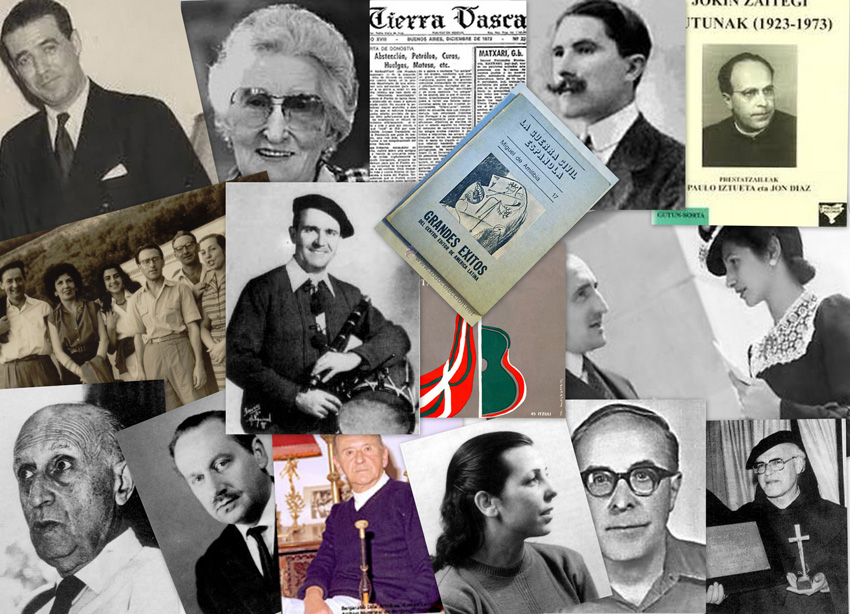The 14th Congress on the exile of the Hamaika Bide Association begins today in Tolosa. This edition is focused on the thinkers who were left out of official speeches: women, homosexuals, religious exiles, and visionaries. The event will begin to celebrate the centennial of the birth of Cecilia Garcia de Guilarte, journalist and writer from Tolosa, who was exiled in Mexico. Afterwards, the congress will move to Donostia. All of the congress sessions are open to the public.
Tolosa, Gipuzkoa. “The Other Face of Exile of 36,” is what the 14th Congress of the Hamaika Bide Elkartea is talking about, giving voice to groups and people who are part of this exile, but who were left out of the official discourse. The individuals studied “represent the anti-norm, the exception the minority. It is a necessary path to discover and propose new keys and new personalities in our diaspora,” association sources said.
The topic has had a notable eco, and the view of several studies and research receive, this year’s congress program is especially large, and will run for five days. While organizing the event, Hamaika Bide has counted on the collaboration of the Basque universities of Deusto, Mondragon and the University of the Basque Country, besides the support of the GEXEL group at the Autonomous University in Barcelona.
Cecilia García de Guilarte
The congress that begins today in Tolosa, is where the centennial of the birth of Cecilia Garcia de Guilarte, will be celebrated. She was a thinker, journalist and Basque writer exiled in Mexico. Born in Tolosa in 1915 she began to write at a very young age in newspapers and magazines. After the civil war of 1936-39, she was exiled to Mexico where she managed the magazine at the University of Sonora, writing among other publications, in some promoted by the Basque exile like Euzko-Deia. She wrote novels and short stories, and also published essays like Sor Juana Inés de la Cruz. Claro en la selva (Sor Juana Ines de la Cruz. Clear in the Jungle) (Basque Publisher Ekin, Buenos Aires, 1958)
In 1964 she returned from America and collaborated in the La Voz de España newspaper in San Sebastian, as a literary critic, until it was discontinued in 1979. Her literary career deserves the prestigious Premio Aguilas (1969) for her novel Cualquiera que os dé muerte (Todas las vidas) (Anyone who Gives Death – All Lives) (Edit. Linosa Barcelona, 1969), work that was republished later by Plaza and Janes (Barcelona, 1977). She also published another novel, La soledad y sus ríos (El indio mi compadre) (Loneliness and its Rivers (The Indian my compadre) (Novelas y Cuentos, Madrid, 1975). A spirited and independent woman with a critical sense activity participated in the cultural life in Donostia in the beginning of the 1960s and 1970s [extract from biography published in Auñamendi].
Complete congress program here.






 Send to a friend
Send to a friend Add comment
Add comment








